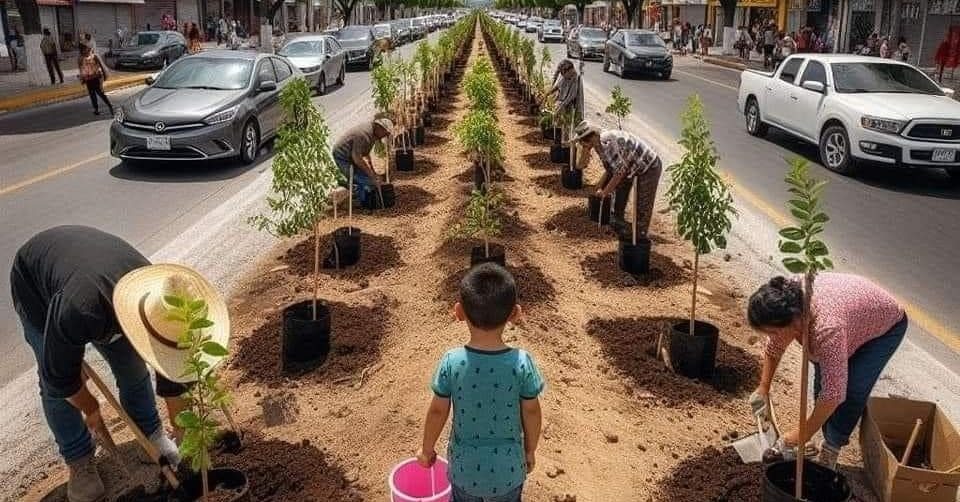The environmental youth initiative, Shagrha, ‘Make it Green,’ is making significant strides in promoting a culture of sustainability and green living in Egypt.
Founded in 2016 by Omar El-Deeb, Shagaha promotes sustainability and green living by transforming urban landscapes through planting fruit trees in streets, schools, and public spaces, and encouraging the cultivation of balconies and rooftops.
“I got the idea when I saw people eating blueberries from a tree in front of my house in Obour East of Cairo,” El-Deeb said. “I asked myself, why shouldn’t I plant other trees for people to benefit from? Three days later, I decided to start the initiative and announced it through a page on Facebook.”
Shagrha has planted more than 350,000 fruit trees in 17 Egyptian governorates. The initiative has also included more than 10,000 balconies and rooftops planted with vegetables, medicinal plants, and fruit trees.
With a firm commitment to sustainable development, Shagrha is beautifying neighborhoods and addressing the pressing issue of climate change. Their efforts represent a proactive approach to environmental stewardship, aiming to inspire and mobilize communities toward a greener, more resilient future.
The initiative’s accomplishments exceed planting trees. Shagrha has expanded its initiative to spread awareness about advanced methods in planting, irrigation, fertilization, and pest control online through its social media. Collaborating closely with private-sector companies, the organization aims to promote corporate social responsibility and foster innovative projects among employees.
In 2020, Shagrha was honored with Egypt’s Environmental Excellence Award for underscoring Egypt’s increasing dedication to environmental causes. The award highlighted the collaborative efforts of the Ministry of the Environment, the Arab Office for Youth, and civil society in championing environmental preservation and protection.
Ahead of the COP27 climate conference in 2023, Shagrha organized a campaign to plant 27,000 fruit trees, such as lemon, olive, guava, yuzu, and orange in schools and streets across Egypt’s provinces—a part of the presidential initiative, 100 Million Trees, to plant fruit trees in Egypt and combat climate change.
“The representatives of the Ministries of Environment, Education, and Civil Society actively contributed to the success of the campaign,” El Deeb said.
Shagrha’s most recent efforts were to plant 500 trees in four schools in Daqahliya. Many people volunteered to help, including Osama Al-Masri.
“Today, we are at the location where we planted fruit trees six years ago,” Al-Masri said. “These trees are now bearing fruit […] and people have started benefiting from them.”
He admitted that one of the reasons he joined the initiative is that these trees have a lifespan of over 25 years and can benefit people for years. Al-Masri said, “We plant fruit trees because they have a significant economic return, in addition to the environmental and social benefits.”
With hundreds of schools and institutions joining the initiative, the new goal is to plant one million trees by 2030.
“We will continue,” he added. “We will plant a million trees by 2030.”







Comments (0)